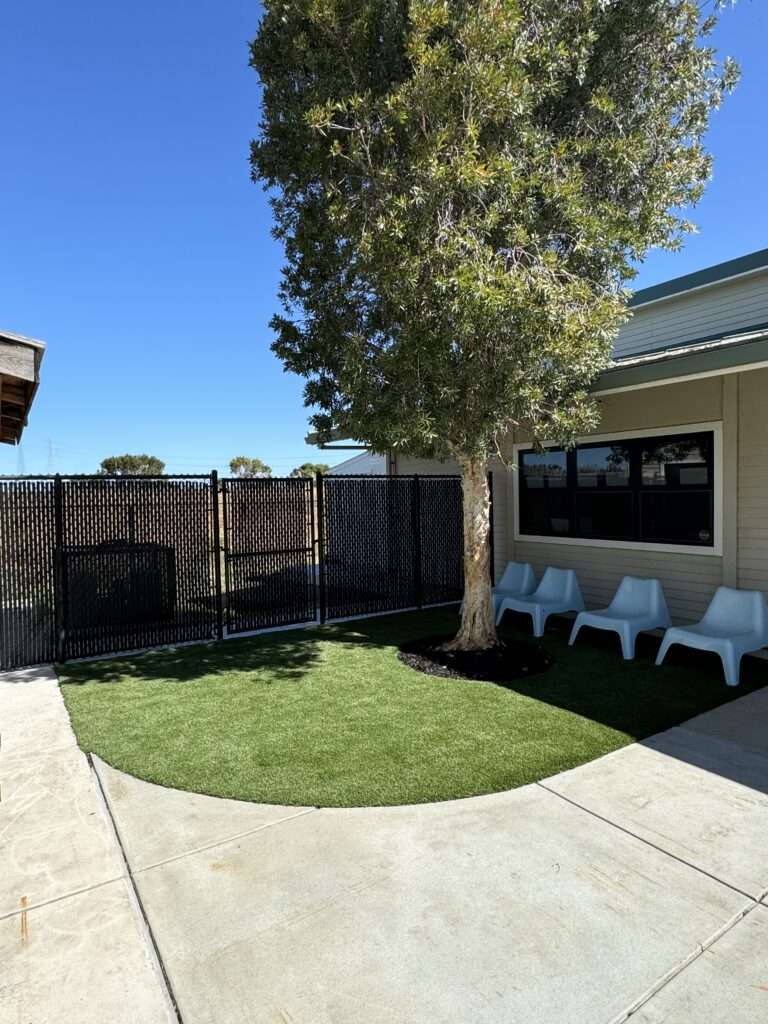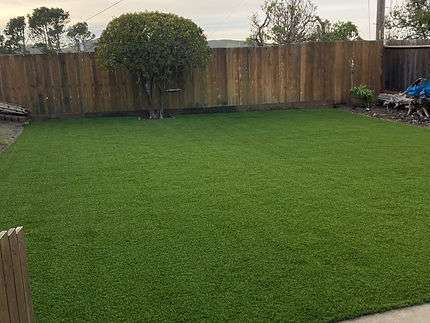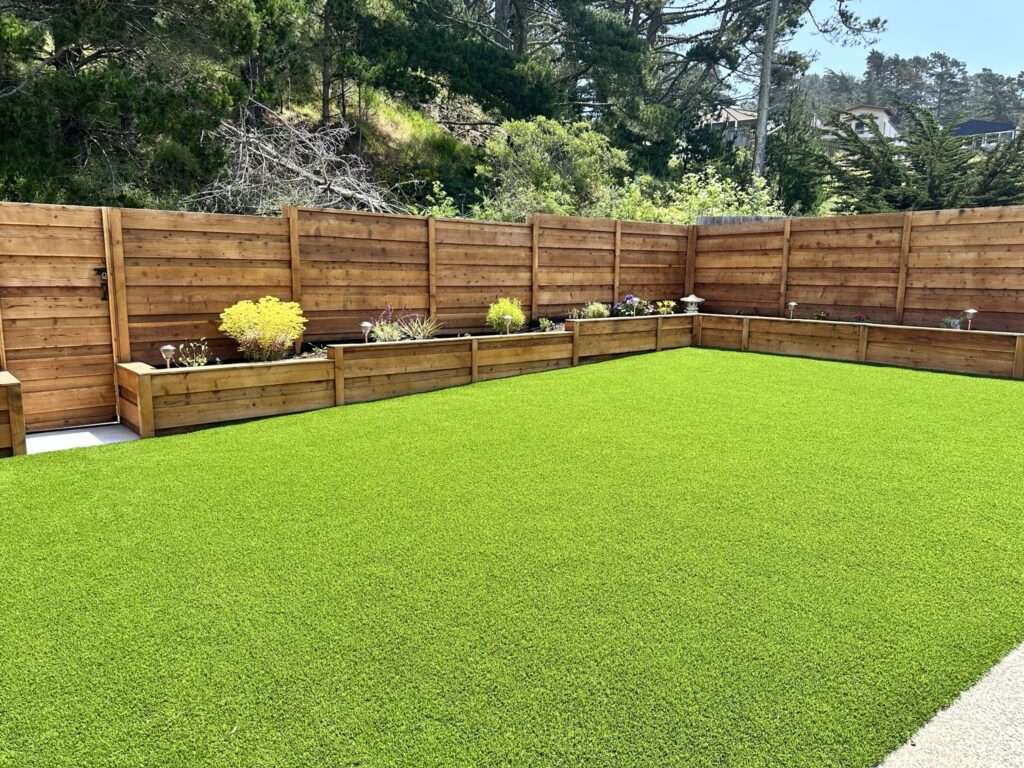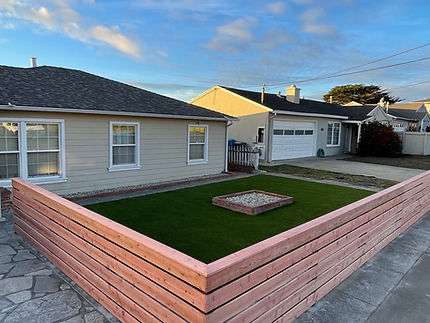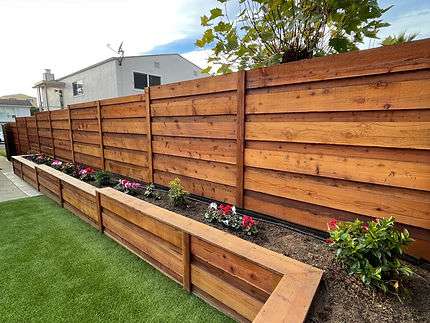Introduction
When choosing the right fencing for your property, cost is a major factor to consider. Homeowners often compare vinyl vs composite fence options and wonder if composite fencing is more expensive than vinyl. In this blog, we’ll explore the cost differences, durability, and long-term value of these two popular fencing materials.
Table of Contents
Understanding Composite and Vinyl Fencing
What is Composite Fencing?
Composite fencing is made from a blend of wood fibers and plastic, providing a natural look with enhanced durability. It is designed to mimic the appearance of wood while resisting rot, pests, and weather damage. Composite fencing is known for its strength, making it less likely to crack, warp, or fade over time. Additionally, it is environmentally friendly, as many composite fencing options incorporate recycled materials. Although the initial cost is higher, composite fencing requires minimal maintenance, making it a long-term investment for homeowners who seek a balance between aesthetics and durability.
Learn more about vinyl fencing from CertainTeed.
What is Vinyl Fencing?
Vinyl fencing is made from PVC (polyvinyl chloride), making it a strong, low-maintenance, and weather-resistant option. It is a popular choice due to its affordability, easy installation, and minimal upkeep requirements. Vinyl fencing does not require painting or staining and is resistant to rot, rust, and pests. Additionally, it is available in various colors and styles, allowing homeowners to customize their fencing to match their property’s aesthetic. However, vinyl fencing may become brittle over time, especially in extreme temperatures, and may crack under impact. Despite this, its low-maintenance nature and cost-effectiveness make it a favorable choice for many property owners.
Is Composite Fencing More Expensive Than Vinyl?
Material Costs
Yes, composite fencing is typically more expensive than vinyl fencing. The cost of composite materials is higher because they combine wood fibers and plastic, making it more durable and environmentally friendly. On the other hand, vinyl fencing is made purely from synthetic materials, which makes it more affordable.
Installation Expenses
Installation costs for composite fencing are also higher due to its weight and complexity. Vinyl fencing is lightweight and easier to install, reducing labor costs. However, professional installation is recommended for both materials to ensure durability and stability.
Long-Term Maintenance Costs
While composite fencing has a higher upfront cost, it requires minimal maintenance and lasts longer. Vinyl fencing is also low maintenance but may become brittle over time, especially in extreme weather conditions. When considering long-term costs, composite fencing may provide better value despite its initial expense.
Vinyl vs Composite Fence: Pros and Cons
| Feature | Composite Fence | Vinyl Fence |
|---|---|---|
| Durability & Longevity | Highly durable, resistant to rot, pests, and weather damage, lasting up to 30 years. | Durable but may become brittle over time, with a lifespan of 20-30 years. |
| Aesthetics & Design | Offers a natural wood-like appearance and comes in various textures and colors. | Available in different colors and designs but lacks the authentic wood grain look. |
| Maintenance | Requires occasional cleaning but no painting or staining. | Needs periodic washing but is resistant to fading and warping. |
| Cost | More expensive initially but offers long-term savings. | More affordable upfront, but may require earlier replacement. |
| Installation | Heavier and more complex to install, leading to higher labor costs. | Lightweight and easier to install, reducing labor costs. |
Which One Should You Choose?
Choosing between vinyl vs composite fence depends on several key factors, including budget, durability, aesthetics, and long-term maintenance preferences. Here’s what to consider when making your decision:
1. Budget Constraints
If you’re looking for a cost-effective solution, vinyl fencing is the better choice. It offers an affordable upfront cost and requires little maintenance, making it ideal for homeowners on a budget. However, if you can invest more initially for long-term benefits, composite fencing provides greater durability and longevity, potentially saving you money in the long run.
2. Durability and Longevity
Composite fencing is the superior option in terms of durability. It resists weather damage, pests, and rot, making it a long-lasting fencing solution. Vinyl fencing is also durable, but it may become brittle and crack under extreme weather conditions, especially in regions with harsh winters or scorching summers.
3. Aesthetic Appeal
If you prefer a natural wood-like appearance, composite fencing is the way to go. It mimics real wood grain and comes in a variety of textures and colors. On the other hand, vinyl fencing offers a sleek, modern look but lacks the rich, authentic feel of wood. If aesthetics are a top priority, composite fencing provides a more premium appearance.
4. Maintenance Requirements
Both vinyl and composite fencing require little maintenance, but composite fencing is slightly more resilient against dirt and stains. Vinyl fencing may need more frequent washing to maintain its clean appearance, while composite fencing requires only occasional cleaning with soap and water.
5. Environmental Considerations
If you are environmentally conscious, composite fencing is the better option. Many composite fences are made from recycled wood fibers and plastic, reducing waste and making them an eco-friendly choice. Vinyl fencing, while recyclable, is made from synthetic materials, which may not be as sustainable.
6. Climate and Weather Conditions
Consider your local climate when choosing between vinyl and composite fencing. Composite fencing withstands extreme weather better than vinyl, which can become brittle in cold climates and fade under prolonged exposure to UV rays. If you live in an area with fluctuating temperatures, composite fencing may be a more reliable option.
7. Installation Process
Vinyl fencing is lightweight and easier to install, making it a more convenient choice for DIY projects. Composite fencing, due to its heavier weight, often requires professional installation, which can add to the overall cost.
Final Verdict
If affordability and easy installation are your top concerns, vinyl fencing is the best choice. However, if you are looking for a durable, long-term investment with a natural appearance and minimal maintenance, composite fencing is worth the higher initial cost. Assess your needs, budget, and local climate before making your final decision.
Conclusion
So, is composite fencing more expensive than vinyl? Yes, initially, composite fencing costs more than vinyl. However, it offers superior durability, a more natural appearance, and long-term savings on maintenance. If you’re looking for a fence that will last for decades with minimal upkeep, composite fencing is a great choice. On the other hand, if you want a cost-effective, low-maintenance solution, vinyl fencing is an excellent alternative.
For more information, explore The Spruce’s guide to fencing options.

